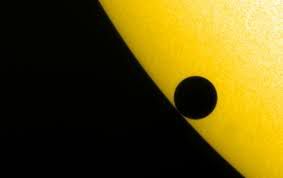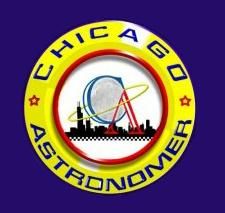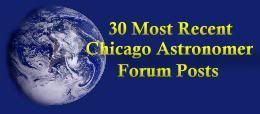Post by Chicago Astronomer - Astro Joe on May 31, 2012 1:16:33 GMT -6
The Chicago Astronomer and the Venus Transit
- Plan for the day -
05 June 2012
- Plan for the day -
05 June 2012
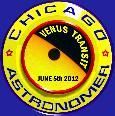
As we all prep for this very uber rare Venus Transit event - the last in our lifetime, (The next Venus Transit will be on December 11, 2117), the day's plans are falling into place and solidifying.
I had the option of working this event as the Chicago Astronomer or as an Adler Planetarium Telescope Facilitator.
Tough call really.
I was offered the opportunity by the Adler to set-up my equipment have a table & display to promote the C.A....along side the Chicago Astronomical Society - which will have about 12 people and scopes to share in the event.
I have friends and associates in all camps, but...I elected to don on my Adler I.D and represent the museum with my own personal equipment in this anticipated event and attended by hundreds....(if not thousands...if the 2004 Transit was any indication.)
The Adler crew will set-up scopes along the Sundial Plaza, just to the Northwest of the Adler Building....
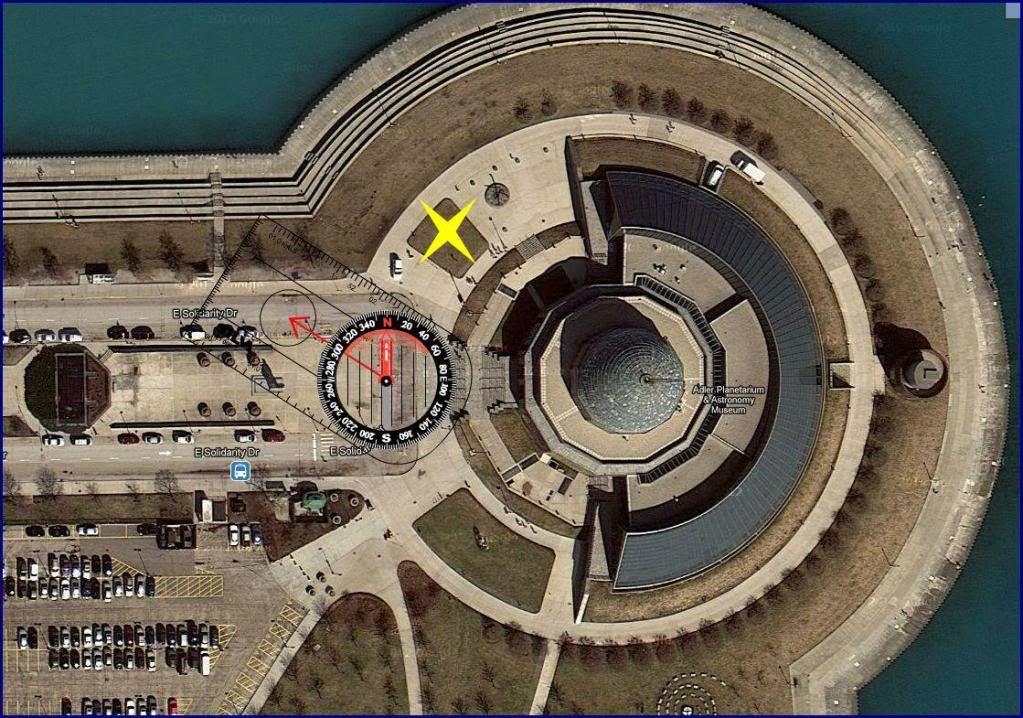
Thanks to Chicago Astronomer Erik for the Google Compass tip...!
The Chicago Astronomer crew has often set-up here prior and it's a great locale to catch this event and the Chicago skyline. The Adler crew in this case, will follow the Sun's travel toward the Horizon - until we lose it behind the buildings.
Here are the details....
-Transit Event Data -
Chicago area observers will get close to three hours of Transit time, but really....with horizon muck and the city skyline to our west from the Adler site - more like 2 1/2 hours +/- of event time.
I will arrive on-scene by the Sundial plaza at 3:30 pm and set-up the C11 and other equipment. We will have telescopes trained on the Sun well ahead of time, anticipating the 1st Contact event at 5:04 pm, but attending to our early visitors and discussing the event and astronomy...

5:04 pm
("First Contact" is when the leading edge of the planet Venus appears to make contact with the limb of the Sun. This will not be easy to observe, as the planet will be jet black in contrast and only after "First Contact", will most observers be able to discern the Venusian disk soon after it enters the solar disk.)
The following are examples of what is to be expected when viewing through telescopes...

Just after First Contact - about 10 seconds into the Transit

At about 5 minutes into the Transit

Close to 17 minutes into the Transit and Venus fully entering the influence of the solar disk. Here, we may witness the infamous "Tear Drop effect"...
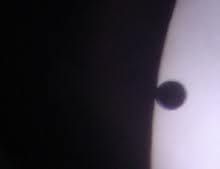
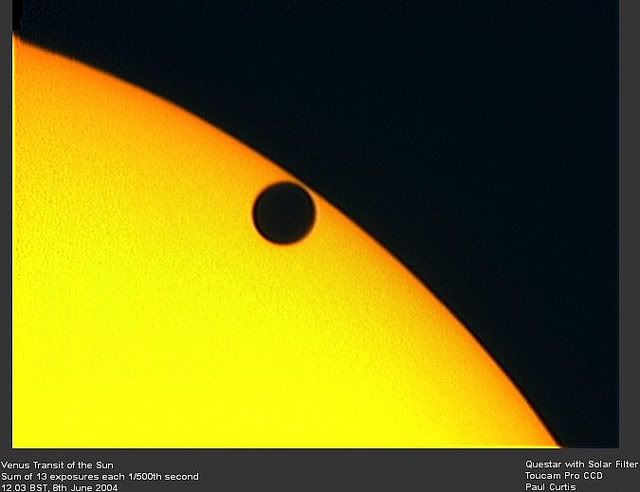
Sometimes, the effect appears, sometimes not...we will just have to wait and see....but all Astronomers will be looking for this phenomenon...including myself.
We will continue to track the Sun and the transit of Venus as it progresses throughout the early evening...

6:04 pm

7:04 pm - This is the approximate time that the Sun will be sinking behind the Chicago skyline and we lose the event to those in the west with a clear horizon.
(During the 2004 Venus Transit, I was able to easily observe the Venusian disk against the rising Sun without filtering and naked eye...Incredible!...)


8:04 pm

8:24 pm Sunset
Equipment:
I was very fortunate to have witnessed the 2004 Venus Transit - and at that time, using my very trusty and modest 4.5" reflector...

The entire account can be found here:
astronomer.proboards.com/index.cgi?board=venustransit&action=display&thread=1823
...but it was an incredible experience and hope I can witness this one with equally clear skies. Being a sunrise event, there were a large number of people present ....and I expect the crowds to swell being this one is at sunset...

This time around...I will be utilizing the mighty C11 SCT Beast - and all decked out for safe solar viewing. There will be three scopes used at my station...and all attached to the C11...

I shall use the 90mm refractor for the straight though "Seymour film" Solar filter views...
The 50mm shorty right angled finder scope for Funnel Rear projection onto an attached "Dual View" Delite screen...
And the main C11 scope for direct full aperture Glass Solar Filter observations.
As I record the Two Contact events with camera...the other two scopes will be free for visitor viewing without interference....then I will offer views through the main scope for the rest of the time we have of the transit....which will be about 2 hours.
All my scopes will be safety proofed - with no direct contact with unfiltered solar light at any point. The Main C11 Filter is snugly fit over the aperture and secured with three hold down screws. The 90mm refractor will be fitted from the inside out - filter snugly resting inside the dew shield...and the 50mm shorty will have the Funnel projection system all tight with hold down screws.
The 9x30 finder scope will not be used.
I will have the tablet with me with pertinent data and images loaded...including the Android Transit App...(Highly recommended to practice in what will be seen - astronomer.proboards.com/index.cgi?board=smartphone&action=display&thread=3728 ) I just may bring the Astrobrella for some much needed shade if totally sunny and a couple of chairs for me and my assistant - C.A. Barbara, who will arrive on scene and assist me in attending to the masses, take head count and keep a watch on equipment.
Also....
Click on this link for Chicago Astronomer Curt's detailed Venus Transit data, graphics and related topics: www.curtrenz.com/venus.html
...and check out Chicago Astronomer Dave's informative and fun video about the Venus Transit and history:
astronomer.proboards.com/index.cgi?action=display&board=NightSky&thread=3852&page=1#17330
Warning:[/color][/size]
It must be mentioned that observing this Transit event is dangerous and will blind without the proper equipment. All Chicago Astronomer and Adler Planetarium telescopes will be properly filtered and safe for all to share.
Do not improvise with unsuitable substitutes such as, Mylar, food wrappers, sunglasses, smoked glass, negatives...or other items not designed for solar work. Do not use unfiltered optics such as binoculars, spotting scopes or telescopes to directly view this event. Instant bad day....!
 One may project the solar image onto a sheet of paper through these instruments for safe viewing.[/blockquote]
One may project the solar image onto a sheet of paper through these instruments for safe viewing.[/blockquote]Let's hope for clear skies and a great Venus Transit experience!
